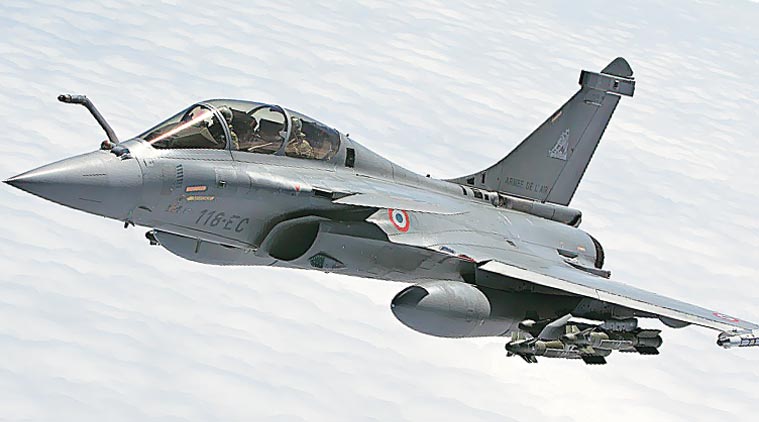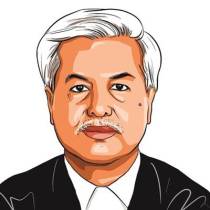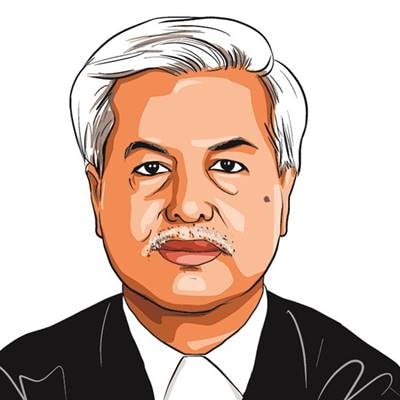In public interest
In Rafale case, Supreme Court has to weigh the imperatives of public debate against its stated position of discouraging frivolous PILs.

PILs have helped millions of citizens in some form or the other. They must, therefore, remain as a strong weapon in the hands of the Courts.
Public Interest Litigation (PIL) means a legal action initiated in a court for the enforcement of public interest or general interest in which the public or a class of the community have pecuniary interest or some interest by which their legal rights or liabilities are affected. But PIL is a weapon which has to be used with great care. The judiciary has to be extremely careful to see that there is no private malice and/or publicity seeking behind the beautiful veil of public interest. The above statements are the law declared by the Supreme Court in a series of judgments. It is also settled law that a person acting bona fide and having sufficient interest in a PIL will alone have a locus standi to approach the Court to wipe out the violation of fundamental rights and a genuine infraction of statutory provisions — not for personal gain, private profit, political motive or any oblique consideration. The petitioner who comes to the court for relief in public interest must, therefore, come not only with clean hands like other writ petitioners but also with a clean heart, clean mind and a clean objective.
PILs have helped millions of citizens in some form or the other. They must, therefore, remain as a strong weapon in the hands of the Courts. The agreement signed by India with France in September 2016 — known as the “Rafale deal” in which India bought 36 off-the-shelf Dessault Rafale twin engine fighters for a price estimated to be Rs 58,000 crore — has generated controversy nationwide, if not internationally. It is not the purpose of this article to comment on the merits of that controversy. The issue is before the people of the country. They alone must be allowed to judge it based on the facts provided to them by the government or the opposition. However, corruption in public life has been a major issue of public debate for the past three decades. Defence deals figure prominently in such debates, but they are, by and large, discussed in hushed tones.
But the debate must not be killed, knowingly or unknowingly. Courts must be careful about this as freedom of speech and expression includes the freedom to receive information as well.
On September 5, the Supreme Court passed the following order in Writ Petition (Criminal) No. 225/2018 filed by Manohar Lal Sharma against Narendra Damodardas Modi and others: “The matter is taken on Board. List the matter next week before the appropriate Bench as per the roster.” This petition relates to the Rafale deal and seeks many reliefs against it. But a few weeks earlier, the Court dismissed another petition filed by Sharma against the Punjab National Bank: “In view of the unwarranted, uncalled for and vexatious allegations/assertions made in the writ petition, we are not inclined to entertain the same.” In doing so, the Court reportedly warned Sharma: “What kind of PILs are you filing? You read some newspaper report and straightway come to court… and make such reckless allegations… These PILs are not PILs at all.” A Constitution Bench of the Court had issued a show cause notice to Sharma on May 1, 2015, as to why he should not be permanently debarred from filing PILs. The Court found allegations in yet another PIL filed by him challenging the new law on appointment of judges for higher judiciary as “scandalous and irresponsible.” In January 2017, it had dismissed a PIL filed by Sharma challenging the advancement of the Union Budget to February ahead of the Assembly polls in five States. In 2014, it had dismissed a PIL filed by him seeking a direction to the Centre to find the whereabouts of Netaji Subhash Chandra Bose. The Court ordered, “We find the petition hopeless and frivolous… But exemplary cost must be awarded for wasting Court’s time.” Sharma was asked to pay Rs 50,000\.
In Dattaraj Nathuji Thaware v. State of Maharashtra (2005), the Supreme Court had, after finding that the PIL filed by an advocate was frivolous and scandalous, ordered: “It is high time that the Bar Councils and the Bar Associations ensure that no member of the Bar becomes party as petitioner or in aiding and/or abetting files frivolous petitions carrying the attractive brand name of ‘public interest litigation’”.
It is, therefore, quite disturbing to find the Court indulging Sharma again by taking his petition on board and listing it “next week before the appropriate Bench as per the roster”, which would, of course, be the Bench presided by the Hon’ble Chief Justice of India. Being the Master of the Roll, the CJI does not allow listing of such sensitive matters before the Benches presided by his senior colleagues nor does he constitute special benches of himself with senior colleagues to hear the same. The order passed on September 5 sends extremely wrong signals to those who admire the Supreme Court and its work immensely.
The court’s eagerness to hear Sharma represents a downward trend from the watershed approaches of recent times, including in cases relating to privacy, relations between the Centre and Delhi Government and, of course, on Section 377. The Court may dismiss the PIL, as it has done in several PILs filed by Sharma. But that will send also wrong signals about legitimising the Rafale deal and squash any public debate about it, thereof — something that the party in power would naturally be happy about.
It is normally not prudent to write on a pending matter but then this is an extraordinary situation and the likelihood of damage to public interest and public cause is going to be irreparable. The merits of the Rafale deal are not being commented upon herein. But the fear of ending the debate outweighs the prudence in normally not commenting upon a matter pending before the Court. The Supreme Court commands universal respect. One only hopes and prays that this is not undermined, even unwittingly.
The writer is a senior advocate and president of Supreme Court Bar Association
For all the latest Opinion News, download Indian Express App
More From Dushyant Dave
- Court to the rescueThe higher judiciary has become the bulwark against hate crime in India...
- Ambedkar’s warningEmergency has been rightly decried in recent weeks. But Babasaheb’s advice to a young republic on dictatorship must be heeded in post-2014 India. ..
- Amicus Curiae Arun Shourie’s new book is essential reading to understand the successes and failures of the Indian judiciary, in particular the brilliance and shortcomings of its…












.png)



























No hay comentarios:
Publicar un comentario